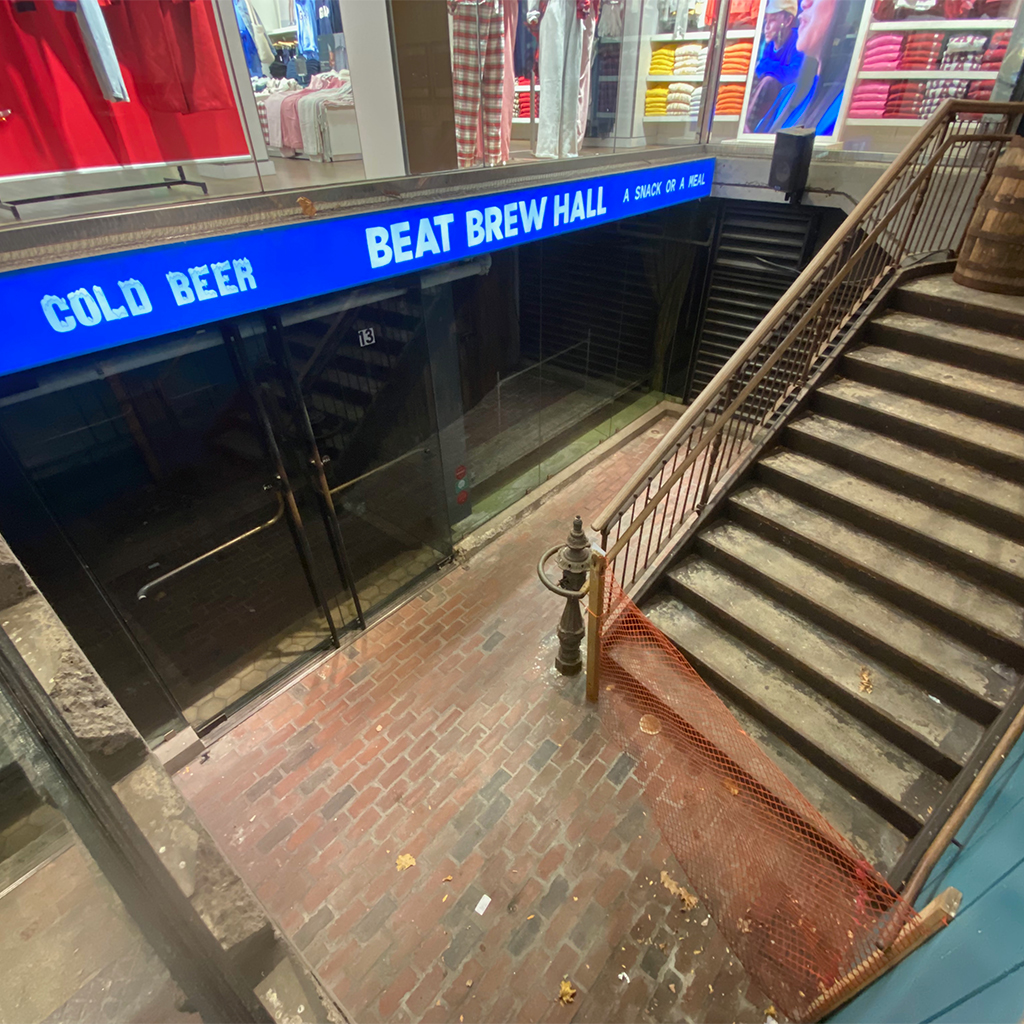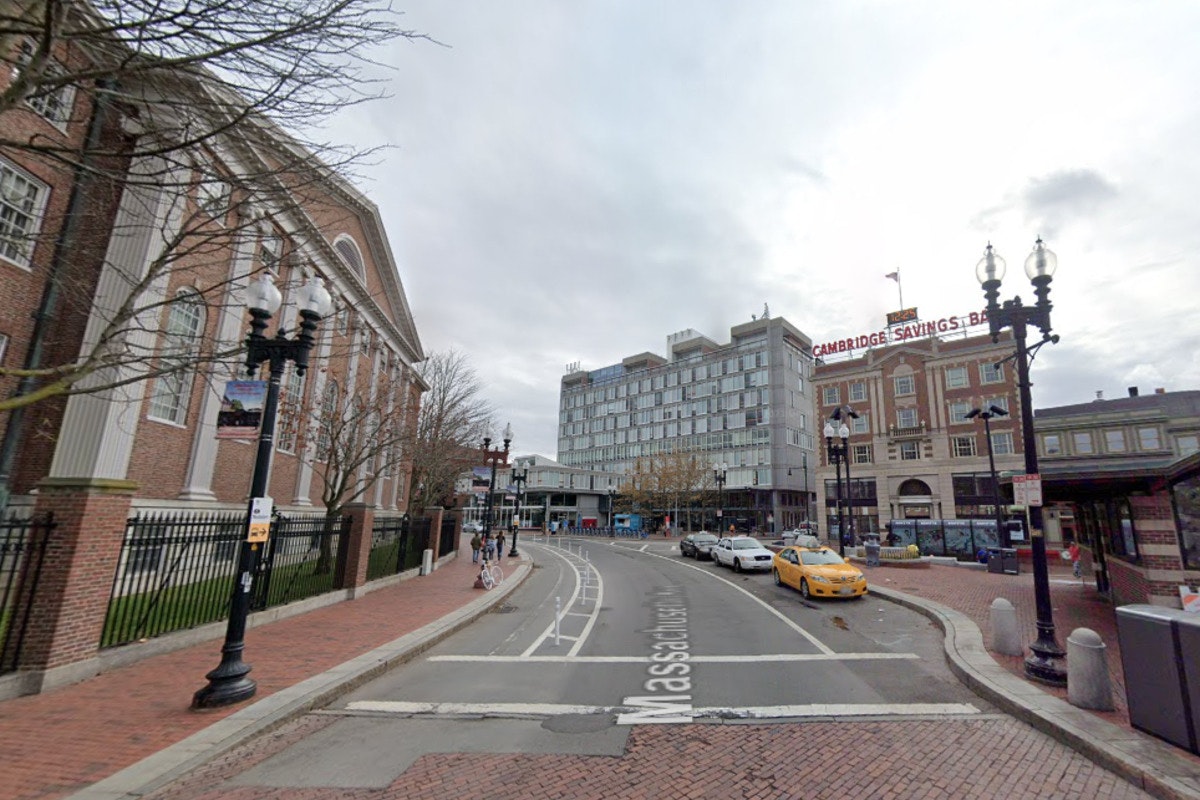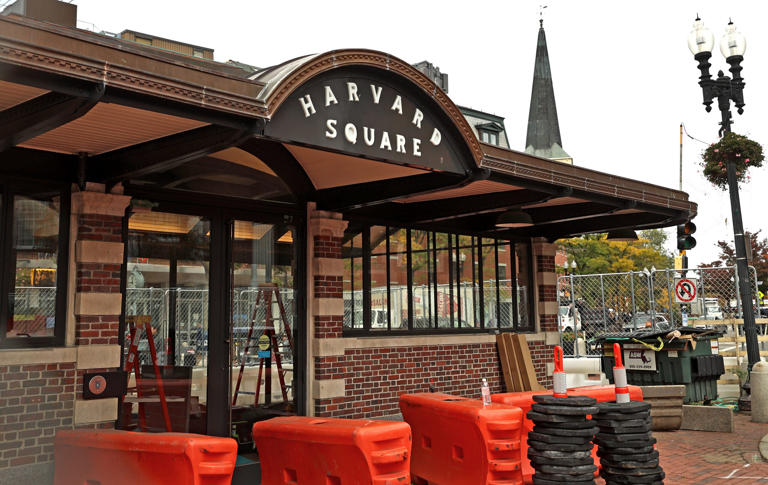Capuchin friars bring food and supplies to Harvard Square’s homeless.
by Lydialyle Gibson

On Thursday afternoon at exactly 3 o’clock, a small white van emerged from the swirl of traffic in Harvard Square and pulled over next to the Cambridge kiosk. Five people climbed out—three wearing winter coats over their long brown robes—and began setting up a temporary coffee and hot-chocolate stand at the back of the vehicle, with sweeteners, stirrers, and napkins neatly laid out next to tall containers of cream. On a small blackboard behind them, the day’s menu of sandwiches was printed: ham and cheese, turkey and cheese, baloney and cheese, peanut butter and jelly. The Capuchin Mobile Ministries had arrived.
Three times a week—on Sundays, Tuesdays, and Thursdays—a group of Capuchin friars based in Jamaica Plain bring food and supplies to the homeless, making stops at seven spots in Cambridge and Boston. “It’s an opportunity to build relationships,” says Amanda Grant-Rose, Ed.M. ’10, director of stewardship and engagement for the Mobile Ministries, who rides along with the van once or twice a month. “It’s a chance to be with people”—and, importantly, she adds, “We come to them.”
Besides sandwiches and hot drinks, the group (which usually consists of two or three friar chaplains and two or three lay volunteers) hands out street necessities such as hats, gloves, socks, hand warmers, and Mylar blankets. They also can help connect people to other outreach agencies and social services. The coffee they offer is made to order. That’s an important detail, Grant-Rose says: “Just the dignity in giving someone not just a cup of coffee, but a cup of coffee made the way they like it.”
That kind of care and attention guides the whole effort, says Brother Paul Fesefeldt, who started the Mobile Ministries in August 2020. “This is a ministry of accompaniment,” he says, “a ministry of presence.” A central part of the mission is spiritual care, but in the broadest possible sense. “Some people just want to be heard,” he says. “We have a guy who, every time we see him, he tells us a story for 20 minutes. And then sometimes with other people, it’s like, ‘Just pray for me, Brother.’” One of the regulars the group sees often, recently asked the friars to pray for his father, who had a stroke. “There’s a cliché that is attributed to St. Francis that says, ‘Preach the gospel always, and if necessary, use words,’” Fesefeldt says. “How you are is how you preach. We’re not a proselytizing ministry; we’re not here to try to get people to go back to church. We’re here to meet them where they’re at, kind of like what Pope Francis said about the Church when he first became pope: a spiritual field hospital.”
Grant-Rose joined the organization in August, after more than a decade of service work in the United States and East Africa. The daughter of a Presbyterian minister and a social worker, she studied special education at the University of Arizona and taught school in Tucson for two years before earning a master’s degree in social work from the University of Pennsylvania and moving from there to the Usambara Mountains in Tanzania, where she helped create a university program to train special-education teachers. After returning to study international education and policy at the Harvard Graduate School of Education, she worked as a program director for a small nonprofit called Lift Up Africa, splitting her time between the United States and East Africa. She first met Fesefeldt several years ago when they both worked at Common Cathedral, an ecumenical outdoor church in Boston with worship services and outreach programs for homeless people. She was his supervisor, and the two used to dream, Grant-Rose says, about starting something like the Mobile Ministries. “Brother Paul would say, wouldn’t it be great if we could do what we do, but go to people and find them in their living rooms, instead of them having to come find us? That would really change the dynamic, change the relationships we can have with people.”
On Thursday in Harvard Square, a half-dozen people ventured over to the van for food or supplies. The group stays at each stop for 20 minutes, and often one of the brothers will scout the area on foot after they arrive, to alert people to their presence, and to bring them supplies if they don’t want to come to the van. “It’s important to walk around, because people see us, even if we don’t see them,” Fesefeldt says. Soon after the group set up, a youngish man made his way over and, after perusing the menu, asked for a ham and cheese sandwich. A few minutes later, a woman pushing a wheeled utility cart filled with two heavy bags approached hesitantly. She accepted a sandwich but said that what she really needed was socks and gloves—did they have any? Another man came over smiling, and after receiving a cup of coffee, stayed and chatted for 15 minutes, talking and laughing, half in Spanish, half English.
Harvard Square is often one of the quieter stops, Fesefeld says—in Central Square that day, the group saw 20 people—but the van never leaves early, even if there’s a lull. Every stop lasts for 20 minutes, every time. “People count on us being here,” he says. “And sometimes people don’t want to come up right away. They want to wait until the very end.” Just before the group packed up to leave, a man with a backpack and a thin scarf drifted over and asked for a turkey sandwich and what Fesefeldt calls a “Capuchin mocha”: half-coffee, half-hot chocolate. The air was getting colder. The man talked quietly with a volunteer and ate the sandwich as he waited for his drink. When one of the brothers handed him the steaming cup, he smiled. “Thank you,” he said and turned to walk back the same way he’d come.




 Source: Google Street View
Source: Google Street View